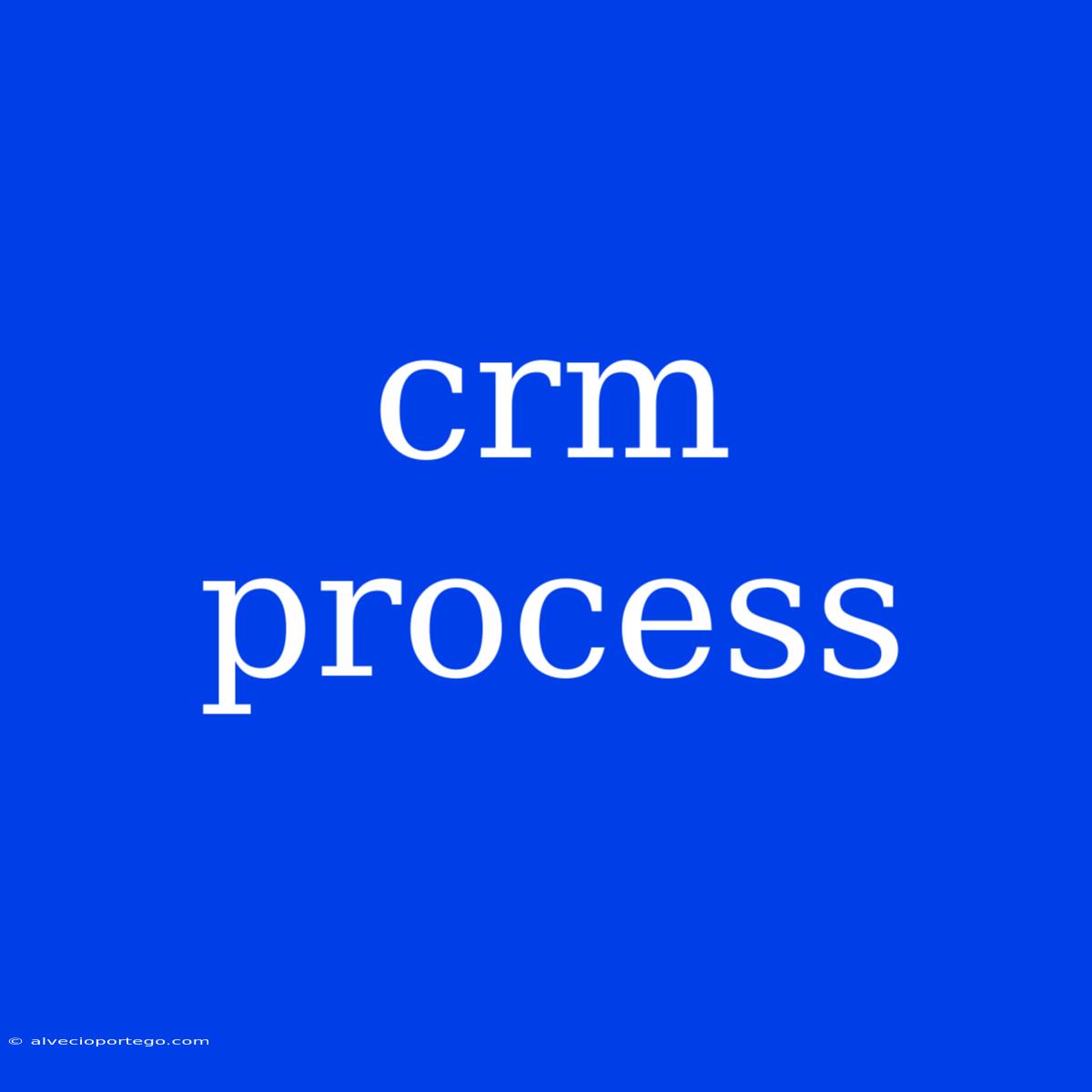What is a CRM Process?
A CRM process, or Customer Relationship Management (CRM) process, is a systematic approach to managing a company's interactions with current and potential customers. It's a comprehensive strategy that encompasses all aspects of the customer journey, from initial contact to post-sale support.
The goal of a CRM process is to improve customer satisfaction, loyalty, and ultimately, profitability. By effectively managing customer data and interactions, businesses can:
- Personalize the customer experience and make them feel valued.
- Identify and address customer needs more effectively.
- Build stronger customer relationships and foster brand loyalty.
- Optimize marketing campaigns to target the right audience.
- Increase sales and revenue by converting more leads and retaining customers.
Key Stages of a CRM Process
A typical CRM process can be broken down into several key stages:
1. Customer Acquisition
This stage focuses on attracting potential customers and generating leads. This involves activities like:
- Marketing campaigns: Digital marketing, social media marketing, email marketing, content marketing, etc.
- Lead generation: Using online forms, landing pages, events, and other methods to capture potential customer information.
- Lead qualification: Assessing the quality of leads based on criteria like budget, needs, and interest.
2. Customer Onboarding
Once a lead converts into a customer, the onboarding process helps integrate them into the business. This includes:
- Setting up accounts: Creating profiles and providing access to relevant information and services.
- Product/service training: Educating customers on how to use the product or service effectively.
- Providing initial support: Addressing any questions or concerns the customer may have.
3. Customer Relationship Management
This is the heart of the CRM process, where the focus is on building and nurturing customer relationships through:
- Personalized communication: Tailoring messages to individual customer needs and preferences.
- Customer support: Providing prompt and efficient assistance through various channels like email, phone, chat, or social media.
- Customer feedback collection: Gathering insights from customers to improve products, services, and the overall experience.
- Customer segmentation: Grouping customers based on shared characteristics to create targeted campaigns and offers.
4. Customer Retention
This stage focuses on keeping customers engaged and satisfied to reduce churn and promote long-term loyalty. Strategies include:
- Loyalty programs: Offering rewards and incentives for repeat purchases.
- Personalized offers: Providing tailored promotions based on customer history and preferences.
- Proactive communication: Reaching out to customers with relevant information and updates.
- Customer advocacy programs: Encouraging customers to become brand ambassadors and share their positive experiences.
5. Customer Expansion
This final stage aims to maximize the value of existing customers by:
- Upselling: Encouraging customers to purchase higher-value products or services.
- Cross-selling: Promoting complementary products or services that align with their needs.
- Building long-term partnerships: Fostering deeper relationships with key customers.
Implementing a CRM Process
Implementing a CRM process involves several steps:
- Define your CRM goals: Clearly outline what you hope to achieve with your CRM strategy.
- Select the right CRM software: Choose a solution that meets your specific business needs and integrates with existing systems.
- Develop your CRM strategy: Define your processes, workflows, and key performance indicators (KPIs) for tracking success.
- Train your team: Ensure all employees understand the CRM process and how to use the chosen software effectively.
- Collect and manage customer data: Maintain accurate and up-to-date information about your customers.
- Continuously analyze and improve: Regularly review your CRM performance and make adjustments as needed.
Benefits of a CRM Process
Implementing a CRM process offers numerous benefits, including:
- Improved customer satisfaction: By providing personalized experiences and responsive support, businesses can enhance customer satisfaction.
- Increased customer loyalty: Building strong relationships with customers can lead to greater loyalty and repeat business.
- Enhanced sales and revenue: By converting more leads, retaining customers, and maximizing their value, CRM processes can drive significant revenue growth.
- Improved marketing effectiveness: By targeting the right audience with personalized messages, CRM can boost marketing ROI.
- Better decision-making: Access to detailed customer data enables informed decisions about product development, marketing campaigns, and business strategy.
In conclusion, a CRM process is essential for any business that wants to build long-lasting customer relationships and drive growth. By effectively managing customer interactions and providing exceptional experiences, businesses can achieve significant success in today's competitive market.

